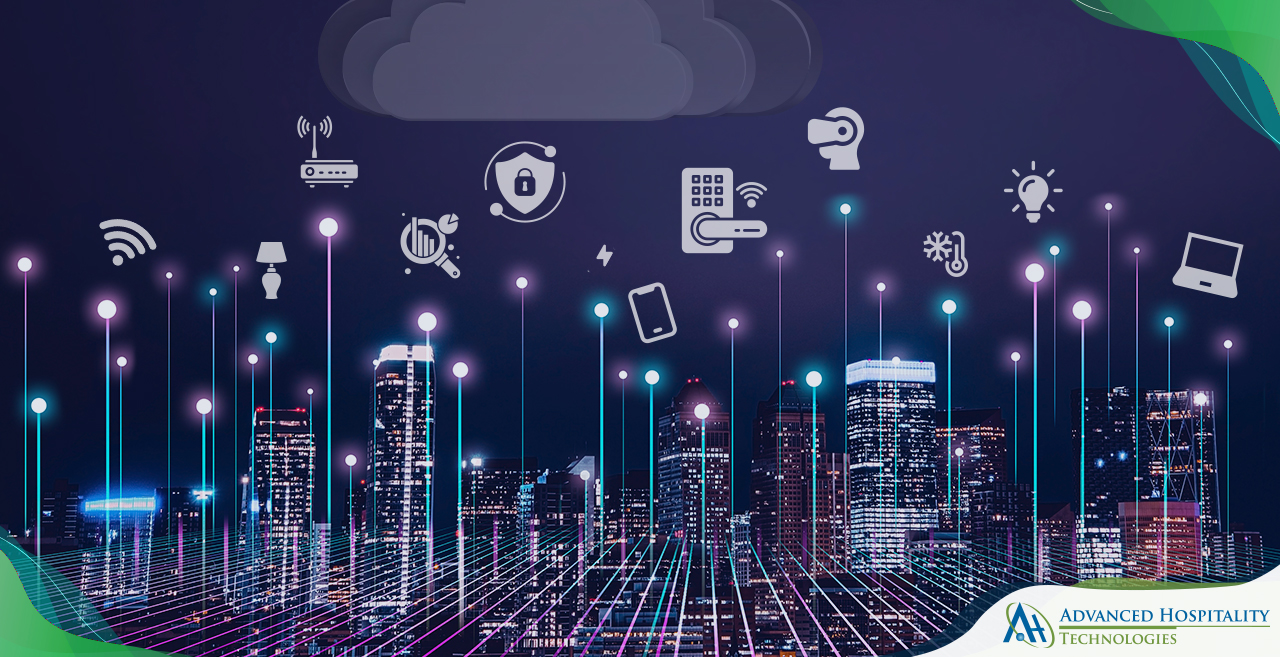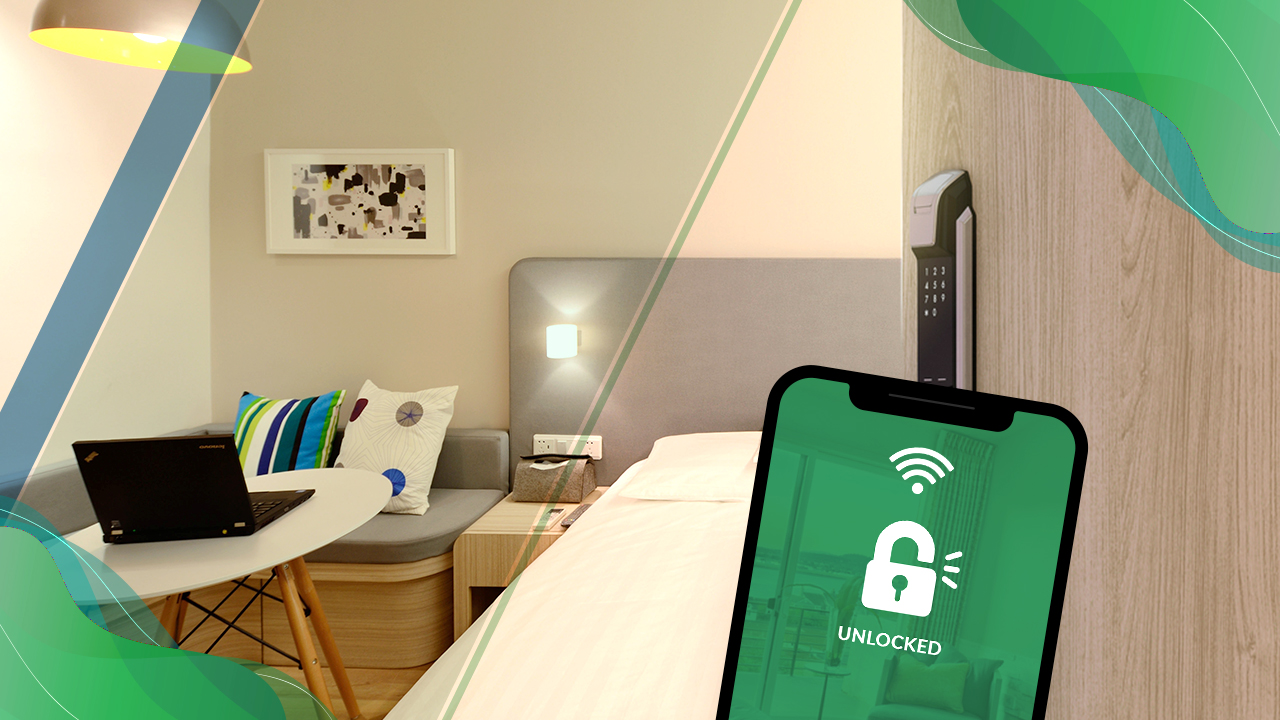Introduction
The hospitality industry is constantly evolving, and technology plays a pivotal role in driving innovation and enhancing the guest experience. As we look ahead, several emerging technologies are poised to revolutionize the way hotels operate and interact with their guests. In this blog post, we’ll explore some of the most promising technologies that are shaping the future of the hotel industry.
Artificial Intelligence (AI)
AI has the potential to transform various aspects of the hotel industry. Chatbots and virtual assistants powered by AI can provide personalized recommendations, answer inquiries, and assist with booking and check-in processes. Additionally, AI can be employed for predictive maintenance, optimizing energy consumption, and enhancing revenue management strategies through demand forecasting and dynamic pricing.
Internet of Things (IoT)
The integration of IoT in hotels enables seamless connectivity between various devices and systems. Smart room controls allow guests to adjust lighting, temperature, and entertainment settings using their smartphones or voice commands. IoT-enabled sensors can monitor occupancy, detect maintenance issues, and optimize energy usage. Furthermore, IoT technology can enhance security measures by enabling keyless entry systems and real-time monitoring of hotel premises.
Virtual Reality (VR)
VR technology offers an immersive and engaging way for hotels to showcase their properties and amenities. Prospective guests can take virtual tours, explore rooms, and experience the hotel’s surroundings before making a booking decision. VR can also be utilized for training purposes, providing realistic simulations for staff to practice customer service scenarios or emergency preparedness.
Augmented Reality (AR)
AR overlays digital information onto the physical world, creating an enhanced and interactive experience. Hotels can leverage AR to provide guests with interactive maps, navigation assistance, and information about nearby attractions and amenities. AR can also be used for maintenance purposes, enabling technicians to access real-time data and instructions while working on equipment or systems.
Robotics and Automation
Robotics and automation are making their way into the hotel industry, streamlining various operations, and enhancing efficiency. From robotic concierges and bellhops to automated check-in and checkout processes, these technologies can reduce labor costs while delivering consistent and reliable service to guests. Additionally, robots can be employed for tasks such as room cleaning and maintenance, ensuring a high level of hygiene and cleanliness.
Biometrics and Keyless Entry
Biometric technologies, such as facial recognition and fingerprint scanning, are gaining traction in the hotel industry, offering enhanced security and convenience for guests. Keyless entry systems, often integrated with mobile apps, allow guests to bypass traditional check-in processes and access their rooms using their smartphones or other biometric identifiers.
These emerging technologies have the potential to revolutionize the hotel industry by streamlining operations, enhancing guest experiences, and driving innovation. However, their successful implementation requires careful planning, investment in infrastructure, and a commitment to data security and privacy. As technology continues to evolve, hotels that embrace these advancements will be better positioned to meet the changing demands of tech-savvy travelers and stay ahead of the competition.
The Future of Emerging Technologies
While the current applications of emerging technologies in the hotel industry are already impressive, we are merely scratching the surface of their potential. As these technologies continue to evolve and become more sophisticated, they will unlock new possibilities and reshape the hospitality landscape.
In the coming years, we can expect to see the integration of these technologies on a grander scale, creating a seamless and interconnected ecosystem within hotel operations. IoT devices, AI systems, and robotic assistants will work in tandem, sharing data and insights to provide a truly personalized and intelligent guest experience.
Moreover, the convergence of technologies such as AI, AR/VR, and biometrics will enable hotels to offer highly immersive and interactive experiences. Imagine being able to virtually explore a hotel’s amenities, restaurants, and surroundings before even stepping foot on the property. Or envision a scenario where AI-powered virtual concierges can anticipate your preferences and tailor recommendations based on your biometric data and past experiences.
Additionally, the rise of 5G and edge computing will further enhance the capabilities of these technologies, enabling real-time data processing and instantaneous communication between devices. This will not only improve operational efficiency but also open up new avenues for innovative services and experiences.
Future Concerns
As with any disruptive technology, there will be challenges to overcome, such as privacy concerns, cybersecurity risks, and the need for skilled personnel to manage and maintain these systems. However, the potential benefits of these emerging technologies are too significant to ignore, and hotels that embrace them early on will undoubtedly gain a competitive advantage in the market.
The future of the hotel industry is one where technology and human touch seamlessly integrate, creating unforgettable experiences for guests while driving operational excellence and profitability for businesses. As hospitality professionals, it is our responsibility to stay ahead of the curve, continuously educate ourselves, and adapt to these rapidly evolving technologies, ensuring that our industry remains at the forefront of innovation and guest satisfaction.
Conclusion
As the hotel industry continues to embrace these emerging technologies, it is crucial for professionals in the field to stay informed and adapt to the changing landscape. By leveraging these innovations, hotels can not only improve operational efficiencies but also deliver personalized and memorable experiences to their guests.
Remember, technology is not a substitute for excellent customer service and human interaction; rather, it should be viewed as a tool to complement and enhance the overall guest experience. By striking the right balance between technology and human touch, the hotel industry can continue to thrive and exceed guest expectations in an increasingly competitive market.

Kazim Raza Ahmed is Research Analyst and Content Strategist at Advanced Hospitality Technologies, A pioneering IT Solutions partner in the hospitality industry. Being a content creator Kazim is dedicated to publishing material keeping pace with the rapid technological developments in the hospitality industry.




